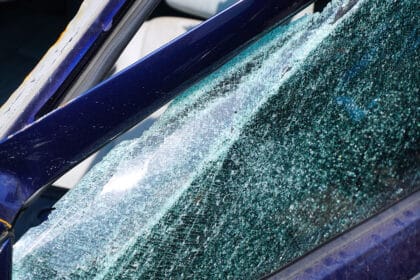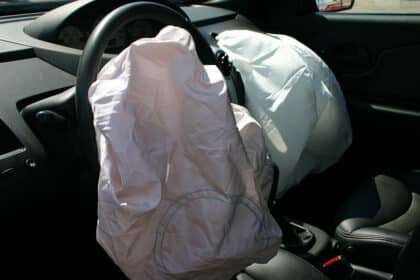
When I’m winding down the weekend and getting ready for yet another Monday, I tune into “Bob’s Burgers” on Fox. It’s a show famous for a family that does a lot of things wrong, but one of its latest episodes was actually full of good tips about what to do (or not do) when you crash your car.
Don’t Be the Belchers: Learn more about why oil changes are essential to your car
In past episodes of the show, the Belcher family hasn’t had the best driving record. In season three, Bob lets his oldest daughter get behind the wheel of the family car in a parking lot. Tina proceeded to get in a slow-moving accident with the only car in the lot, ensnaring her in a plot by their insurance agent to file fraudulent claims. Later in season four, there’s a whole episode dedicated to the Belcher family facing off against a truck driver with a bad case of holiday road rage.
via GIPHY
As of publication, “Bob’s Burgers” sits at season 11, episode 18. Called “Some Kind of Fender Benderful,” the latest installment is all about Bob getting into a minor four-car collision when he’s trying to move to a different street parking spot. While the half-hour of animation is really funny (one of the people involved in the accident has clown makeup on), it’s a decent demonstration of how to handle an accident.
Author’s Note: Spoilers for the episode included in the list below.
Call the police and tell the truth: When Bob gets into the accident, everyone gets out of their cars to check for damage. They then debate whether they should alert authorities or just exchange information. Depending on the state you live in, it could be required that you call the cops to fill out an accident report. Even if it isn’t the law, your insurance company will probably want a copy of that report, so it’s good to have.
While they’re waiting on the officer to show up at the scene, the drivers break up into factions to decide how to spin the story to put another motorist at fault. Save the talking for when law enforcement is there asking questions and just tell them what happened from your point of view. If you cook up a story to tell instead, you could be charged with a crime.
Don’t say you’re sorry: If you were raised in the Midwest like I was, you may be tempted to apologize when talking to other drivers to make the bad situation better. Most legal sources you look at will tell you not to say that after a collision, as it could be used against you later in court.
For An Older Tina: Check out what makes the Chevy Equinox perfect for teens
In “Some Kind of Fender Bender,” Bob says “I’m sorry this happened,” after the crash. That leads to the other four drivers accusing Bob of causing the pile-up. Later in the episode, Bob realizes that he might have forgotten to use his turn signal when leaving his street parking spot, which would put him at fault. Even though he’s pretty sure that’s what happened, his friends and family urge him to keep quiet. While you should always tell the truth, don’t take the next step to accept blame. That’s for the police and insurance companies to determine.
The driver in the back isn’t always at fault: After the accident, Bob assumes that the driver in the back, Patty, is automatically at fault. His best friend Teddy is quick to correct him, saying that it is the front driver’s fault if they slam on their brakes for no reason, or another motorist’s fault if they swerve into traffic. Teddy is a bit right — the law changes depending on what state you’re in, but the front driver can be at fault in many cases if they pull out into traffic incorrectly.
Don’t go for the vacation house the police officer keeps pushing on you: The responding officer keeps trying to push reasons to rent the vacation home she renovated on everyone at the scene. I don’t care if it has brand new indoor/outdoor carpet, this is not the time!
If you watched “Some Kind of Fender Benderful” and were learning new things, make sure that you look over the laws in your state that deal with collisions. You don’t want to pull a Bob the next time you have to exchange insurance information and get saddled with higher rates.
The News Wheel is a digital auto magazine providing readers with a fresh perspective on the latest car news. We’re located in the heart of America (Dayton, Ohio) and our goal is to deliver an entertaining and informative perspective on what’s trending in the automotive world. See more articles from The News Wheel.










